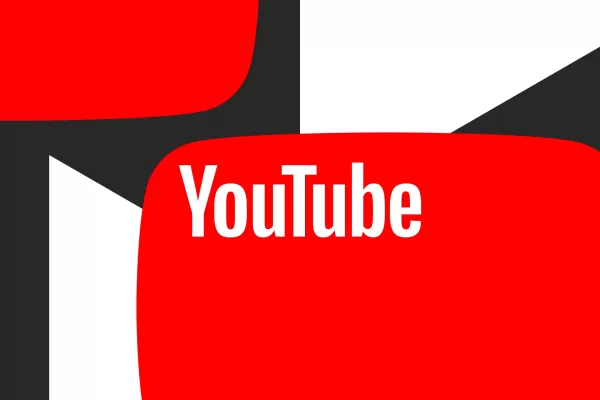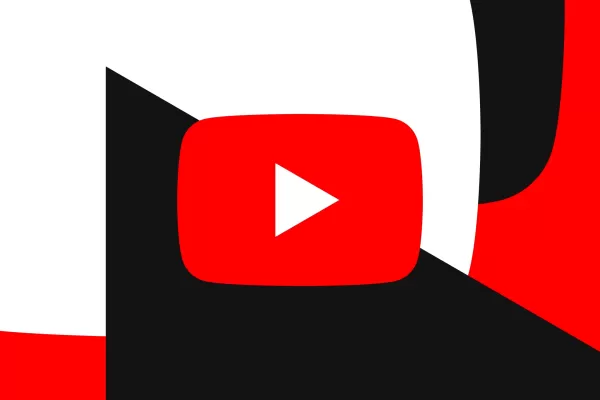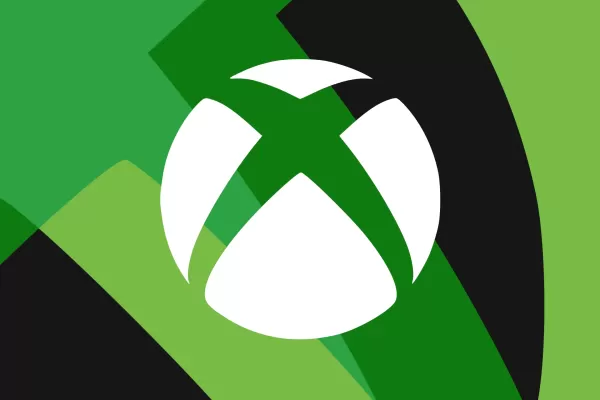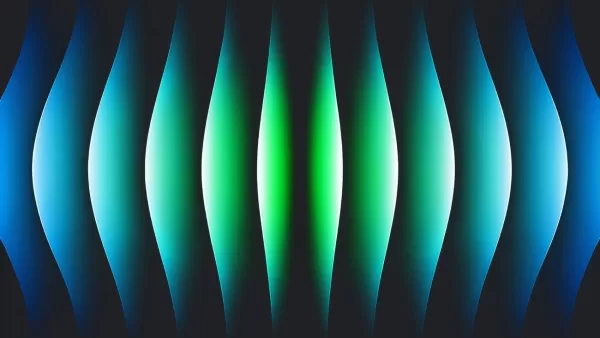YouTube Backs 'No Fakes Act' to Combat Unauthorized AI Replicas

Senators Chris Coons (D-DE) and Marsha Blackburn (R-TN) are once again pushing forward their Nurture Originals, Foster Art, and Keep Entertainment Safe, or NO FAKES, Act. This legislation aims to set clear rules about creating AI-generated copies of someone's face, name, or voice. After being introduced in both 2023 and 2024, the bill now enjoys the support of a heavyweight in the online world: YouTube.
In their statement backing the act, YouTube emphasized its focus on finding a balance between protection and innovation. They stated that the bill empowers individuals by allowing them to alert platforms about AI-generated likenesses they feel should be taken down. This support aligns YouTube with other endorsers like SAG-AFTRA and the Recording Industry Association, though it faces opposition from civil liberties organizations such as the Electronic Frontier Foundation (EFF), who argue that earlier versions of the bill were too broad in scope.
Related
- Google and YouTube are trying to have it both ways with AI and copyright
- YouTube’s AI-powered dubbing is now available to many more creators
The 2024 iteration of the bill includes provisions that protect online services like YouTube from liability for hosting unauthorized digital replicas if they remove the content upon receiving claims of unauthorized use and notify the uploader of the removal. An additional exception is made for services designed or marketed specifically for creating deepfakes.
During the bill's announcement press conference, Senator Coons highlighted that the updated "2.0" version addresses concerns about free speech and limits on liability.
YouTube has also thrown its weight behind the Take It Down Act, which criminalizes the sharing of non-consensual intimate images, including AI-generated deepfakes. The act also requires social media platforms to have efficient processes for removing such content when reported. Despite opposition from civil liberties groups and some advocates against non-consensual intimate imagery (NCII), the Senate has passed this act, and it has moved forward from a House committee this week.
Simultaneously, YouTube is expanding its pilot program for "likeness management technology," which it initially launched last year in collaboration with CAA. This technology allows celebrities and creators to identify AI-generated copies of themselves and request their removal. Notable participants in this expanded pilot include top creators like MrBeast, Mark Rober, and Marques Brownlee, among others.
Related article
 YouTube Integrates Veo 3 AI Video Tool Directly Into Shorts Platform
YouTube Shorts to Feature Veo 3 AI Video Model This SummerYouTube CEO Neal Mohan revealed during his Cannes Lions keynote that the platform's cutting-edge Veo 3 AI video generation technology will debut on YouTube Shorts later this summer. This follo
YouTube Integrates Veo 3 AI Video Tool Directly Into Shorts Platform
YouTube Shorts to Feature Veo 3 AI Video Model This SummerYouTube CEO Neal Mohan revealed during his Cannes Lions keynote that the platform's cutting-edge Veo 3 AI video generation technology will debut on YouTube Shorts later this summer. This follo
 Microsoft Teases Budget-Friendly Xbox Cloud Gaming Subscription
Microsoft Explores Affordable Options for Xbox Cloud GamingNew developments suggest Microsoft is moving forward with plans to make Xbox Cloud Gaming more budget-friendly. Following earlier reports about a potential free ad-supported version, company
Microsoft Teases Budget-Friendly Xbox Cloud Gaming Subscription
Microsoft Explores Affordable Options for Xbox Cloud GamingNew developments suggest Microsoft is moving forward with plans to make Xbox Cloud Gaming more budget-friendly. Following earlier reports about a potential free ad-supported version, company
 Google Cloud Powers Breakthroughs in Scientific Research and Discovery
The digital revolution is transforming scientific methodologies through unprecedented computational capabilities. Cutting-edge technologies now augment both theoretical frameworks and laboratory experiments, propelling breakthroughs across discipline
Comments (12)
0/200
Google Cloud Powers Breakthroughs in Scientific Research and Discovery
The digital revolution is transforming scientific methodologies through unprecedented computational capabilities. Cutting-edge technologies now augment both theoretical frameworks and laboratory experiments, propelling breakthroughs across discipline
Comments (12)
0/200
![GeorgeKing]() GeorgeKing
GeorgeKing
 August 22, 2025 at 3:01:18 AM EDT
August 22, 2025 at 3:01:18 AM EDT
This NO FAKES Act sounds like a game-changer! Curious how it'll balance protecting creators vs. stifling AI innovation. 🤔 Anyone else worried about enforcement?


 0
0
![WillMartinez]() WillMartinez
WillMartinez
 August 9, 2025 at 11:00:59 PM EDT
August 9, 2025 at 11:00:59 PM EDT
Super interesting move by YouTube! Supporting the No Fakes Act shows they’re serious about protecting creators from AI deepfakes. But will this really stop bad actors, or just make it harder for small creators to experiment with AI? 🤔 Curious to see how this plays out!


 0
0
![BrianWalker]() BrianWalker
BrianWalker
 April 28, 2025 at 1:23:24 PM EDT
April 28, 2025 at 1:23:24 PM EDT
YouTubeが「No Fakes Act」を支持するのは大きな動きだね!そろそろ誰かが無許可のAIレプリカについて何かをする時だったよ。これを理解するのは少し面倒だけど、彼らが立場を表明するのは嬉しい。良い戦いを続けて!🛡️


 0
0
![RaymondAdams]() RaymondAdams
RaymondAdams
 April 28, 2025 at 9:01:09 AM EDT
April 28, 2025 at 9:01:09 AM EDT
YouTube supporting the NO FAKES Act is a big step in the right direction. It's about time we set some rules on AI replicas. But, does it really stop the deepfakes? I'm not so sure. Still, kudos for trying to keep things real! 👍


 0
0
![RobertLewis]() RobertLewis
RobertLewis
 April 28, 2025 at 8:06:23 AM EDT
April 28, 2025 at 8:06:23 AM EDT
यूट्यूब का 'नो फेक्स एक्ट' को समर्थन देना एक बड़ा कदम है! किसी को भी अनधिकृत AI रेप्लिका के बारे में कुछ करने का समय आ गया था। इसे समझना थोड़ा मुश्किल है, लेकिन मुझे खुशी है कि वे अपना रुख रख रहे हैं। अच्छी लड़ाई जारी रखें! 🛡️


 0
0
![WillLopez]() WillLopez
WillLopez
 April 28, 2025 at 5:16:32 AM EDT
April 28, 2025 at 5:16:32 AM EDT
유튜브가 NO FAKES Act을 지지하는 것은 올바른 방향으로의 큰 걸음입니다. AI 복제에 대한 규칙을 설정할 때가 되었죠. 하지만, 정말로 딥페이크를 막을 수 있을까요? 확신이 서지 않네요. 그래도 현실을 지키려는 노력에 박수를 보냅니다! 👍


 0
0

Senators Chris Coons (D-DE) and Marsha Blackburn (R-TN) are once again pushing forward their Nurture Originals, Foster Art, and Keep Entertainment Safe, or NO FAKES, Act. This legislation aims to set clear rules about creating AI-generated copies of someone's face, name, or voice. After being introduced in both 2023 and 2024, the bill now enjoys the support of a heavyweight in the online world: YouTube.
In their statement backing the act, YouTube emphasized its focus on finding a balance between protection and innovation. They stated that the bill empowers individuals by allowing them to alert platforms about AI-generated likenesses they feel should be taken down. This support aligns YouTube with other endorsers like SAG-AFTRA and the Recording Industry Association, though it faces opposition from civil liberties organizations such as the Electronic Frontier Foundation (EFF), who argue that earlier versions of the bill were too broad in scope.
Related
- Google and YouTube are trying to have it both ways with AI and copyright
- YouTube’s AI-powered dubbing is now available to many more creators
The 2024 iteration of the bill includes provisions that protect online services like YouTube from liability for hosting unauthorized digital replicas if they remove the content upon receiving claims of unauthorized use and notify the uploader of the removal. An additional exception is made for services designed or marketed specifically for creating deepfakes.
During the bill's announcement press conference, Senator Coons highlighted that the updated "2.0" version addresses concerns about free speech and limits on liability.
YouTube has also thrown its weight behind the Take It Down Act, which criminalizes the sharing of non-consensual intimate images, including AI-generated deepfakes. The act also requires social media platforms to have efficient processes for removing such content when reported. Despite opposition from civil liberties groups and some advocates against non-consensual intimate imagery (NCII), the Senate has passed this act, and it has moved forward from a House committee this week.
Simultaneously, YouTube is expanding its pilot program for "likeness management technology," which it initially launched last year in collaboration with CAA. This technology allows celebrities and creators to identify AI-generated copies of themselves and request their removal. Notable participants in this expanded pilot include top creators like MrBeast, Mark Rober, and Marques Brownlee, among others.
 YouTube Integrates Veo 3 AI Video Tool Directly Into Shorts Platform
YouTube Shorts to Feature Veo 3 AI Video Model This SummerYouTube CEO Neal Mohan revealed during his Cannes Lions keynote that the platform's cutting-edge Veo 3 AI video generation technology will debut on YouTube Shorts later this summer. This follo
YouTube Integrates Veo 3 AI Video Tool Directly Into Shorts Platform
YouTube Shorts to Feature Veo 3 AI Video Model This SummerYouTube CEO Neal Mohan revealed during his Cannes Lions keynote that the platform's cutting-edge Veo 3 AI video generation technology will debut on YouTube Shorts later this summer. This follo
 Microsoft Teases Budget-Friendly Xbox Cloud Gaming Subscription
Microsoft Explores Affordable Options for Xbox Cloud GamingNew developments suggest Microsoft is moving forward with plans to make Xbox Cloud Gaming more budget-friendly. Following earlier reports about a potential free ad-supported version, company
Microsoft Teases Budget-Friendly Xbox Cloud Gaming Subscription
Microsoft Explores Affordable Options for Xbox Cloud GamingNew developments suggest Microsoft is moving forward with plans to make Xbox Cloud Gaming more budget-friendly. Following earlier reports about a potential free ad-supported version, company
 Google Cloud Powers Breakthroughs in Scientific Research and Discovery
The digital revolution is transforming scientific methodologies through unprecedented computational capabilities. Cutting-edge technologies now augment both theoretical frameworks and laboratory experiments, propelling breakthroughs across discipline
Google Cloud Powers Breakthroughs in Scientific Research and Discovery
The digital revolution is transforming scientific methodologies through unprecedented computational capabilities. Cutting-edge technologies now augment both theoretical frameworks and laboratory experiments, propelling breakthroughs across discipline
 August 22, 2025 at 3:01:18 AM EDT
August 22, 2025 at 3:01:18 AM EDT
This NO FAKES Act sounds like a game-changer! Curious how it'll balance protecting creators vs. stifling AI innovation. 🤔 Anyone else worried about enforcement?


 0
0
 August 9, 2025 at 11:00:59 PM EDT
August 9, 2025 at 11:00:59 PM EDT
Super interesting move by YouTube! Supporting the No Fakes Act shows they’re serious about protecting creators from AI deepfakes. But will this really stop bad actors, or just make it harder for small creators to experiment with AI? 🤔 Curious to see how this plays out!


 0
0
 April 28, 2025 at 1:23:24 PM EDT
April 28, 2025 at 1:23:24 PM EDT
YouTubeが「No Fakes Act」を支持するのは大きな動きだね!そろそろ誰かが無許可のAIレプリカについて何かをする時だったよ。これを理解するのは少し面倒だけど、彼らが立場を表明するのは嬉しい。良い戦いを続けて!🛡️


 0
0
 April 28, 2025 at 9:01:09 AM EDT
April 28, 2025 at 9:01:09 AM EDT
YouTube supporting the NO FAKES Act is a big step in the right direction. It's about time we set some rules on AI replicas. But, does it really stop the deepfakes? I'm not so sure. Still, kudos for trying to keep things real! 👍


 0
0
 April 28, 2025 at 8:06:23 AM EDT
April 28, 2025 at 8:06:23 AM EDT
यूट्यूब का 'नो फेक्स एक्ट' को समर्थन देना एक बड़ा कदम है! किसी को भी अनधिकृत AI रेप्लिका के बारे में कुछ करने का समय आ गया था। इसे समझना थोड़ा मुश्किल है, लेकिन मुझे खुशी है कि वे अपना रुख रख रहे हैं। अच्छी लड़ाई जारी रखें! 🛡️


 0
0
 April 28, 2025 at 5:16:32 AM EDT
April 28, 2025 at 5:16:32 AM EDT
유튜브가 NO FAKES Act을 지지하는 것은 올바른 방향으로의 큰 걸음입니다. AI 복제에 대한 규칙을 설정할 때가 되었죠. 하지만, 정말로 딥페이크를 막을 수 있을까요? 확신이 서지 않네요. 그래도 현실을 지키려는 노력에 박수를 보냅니다! 👍


 0
0





























